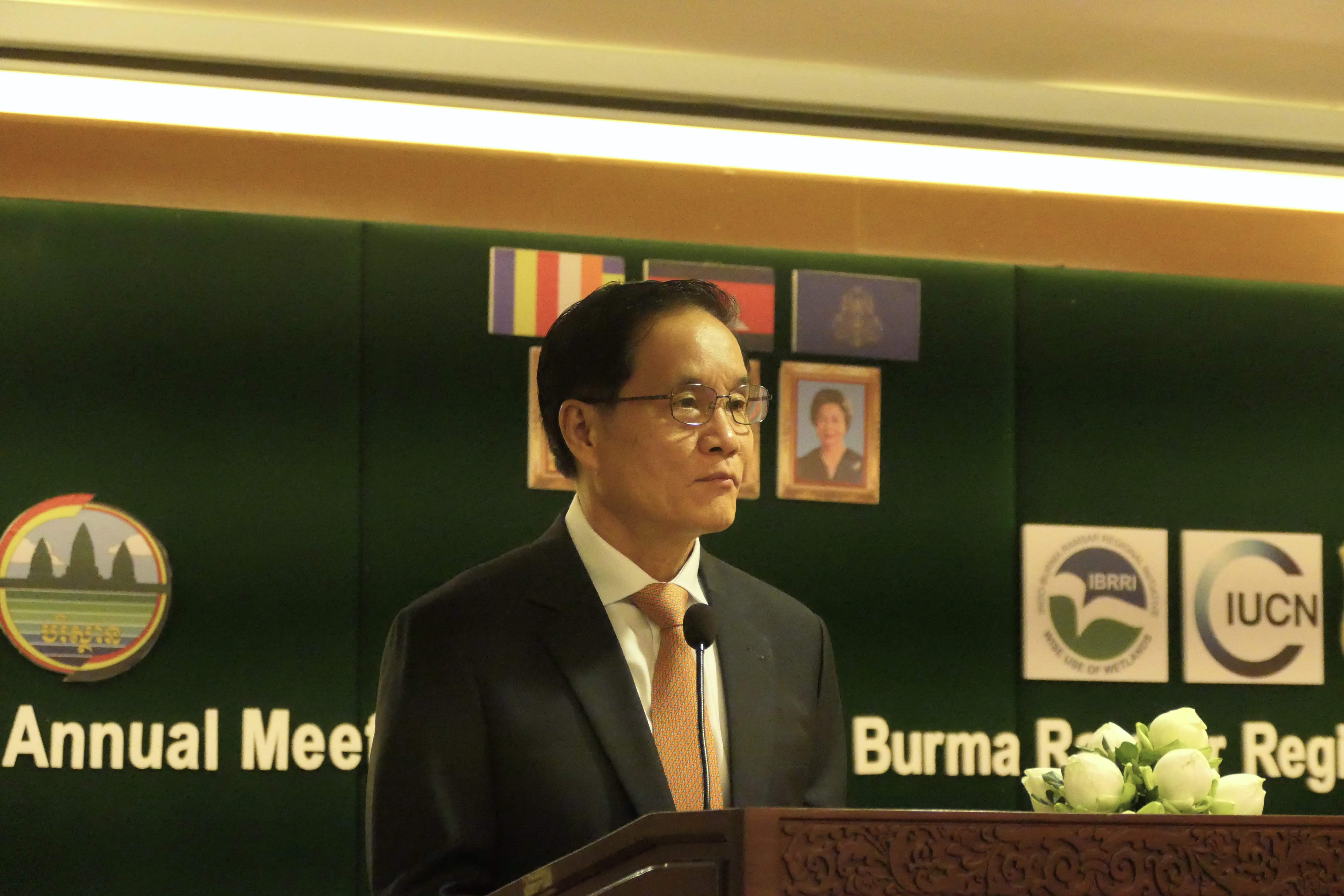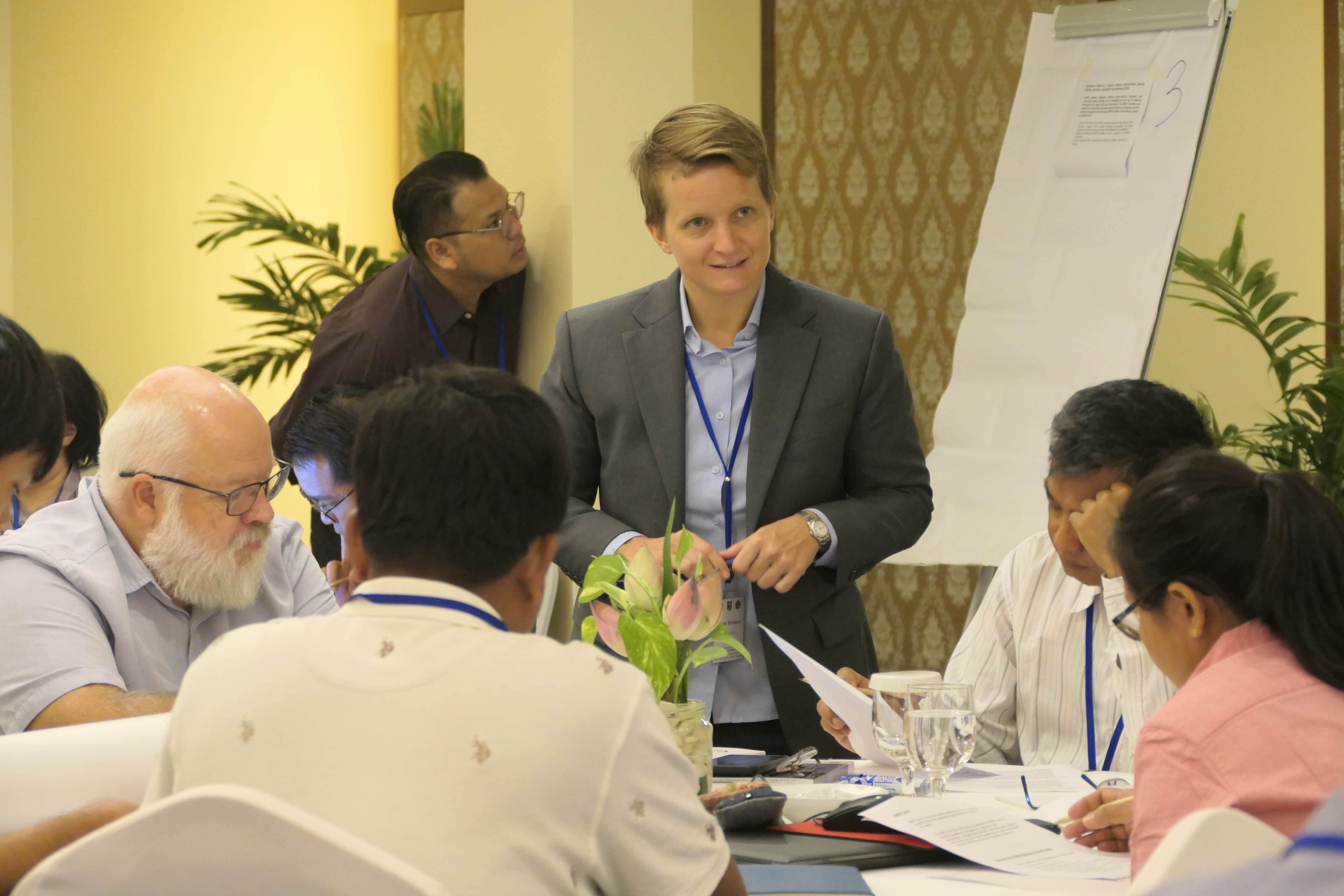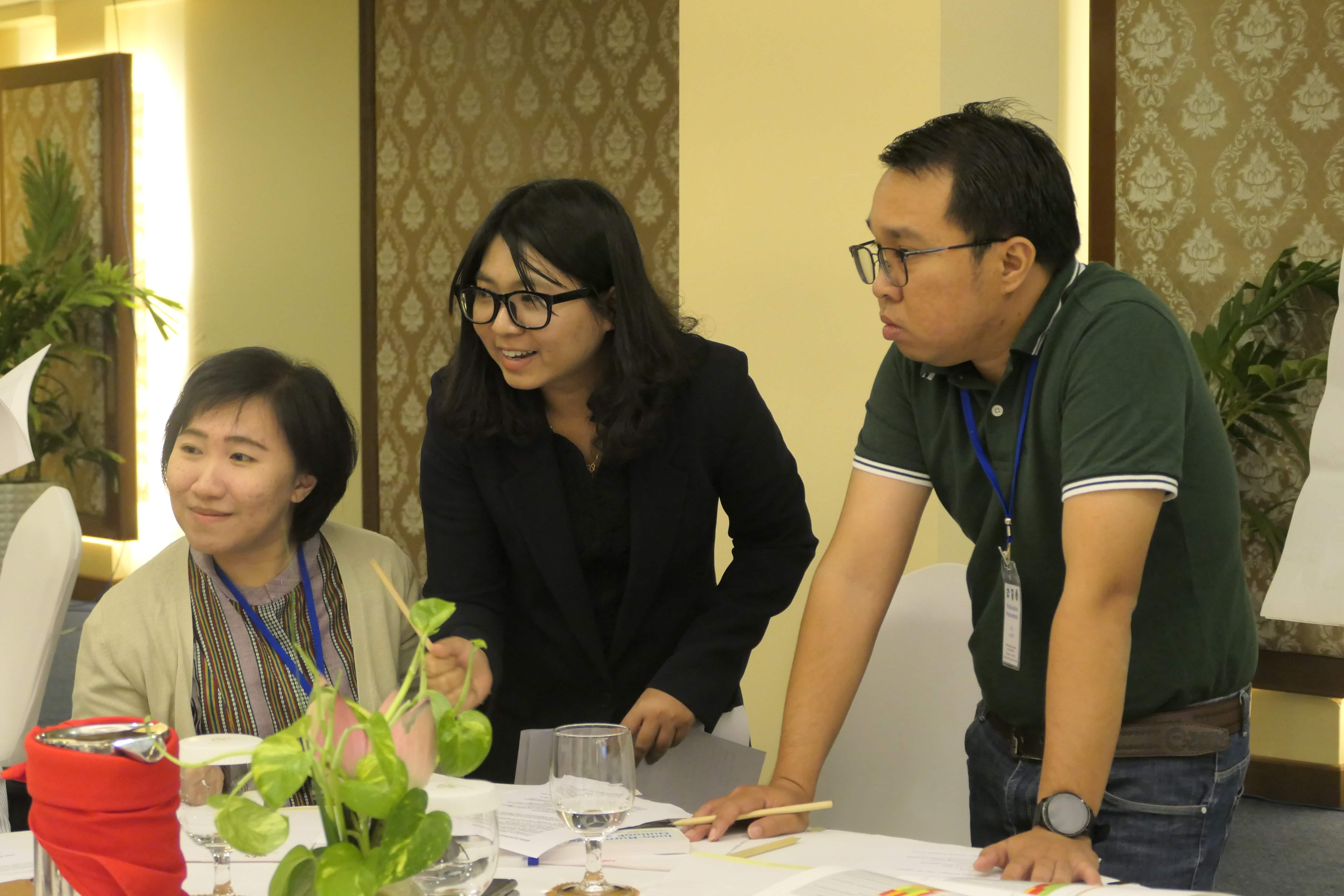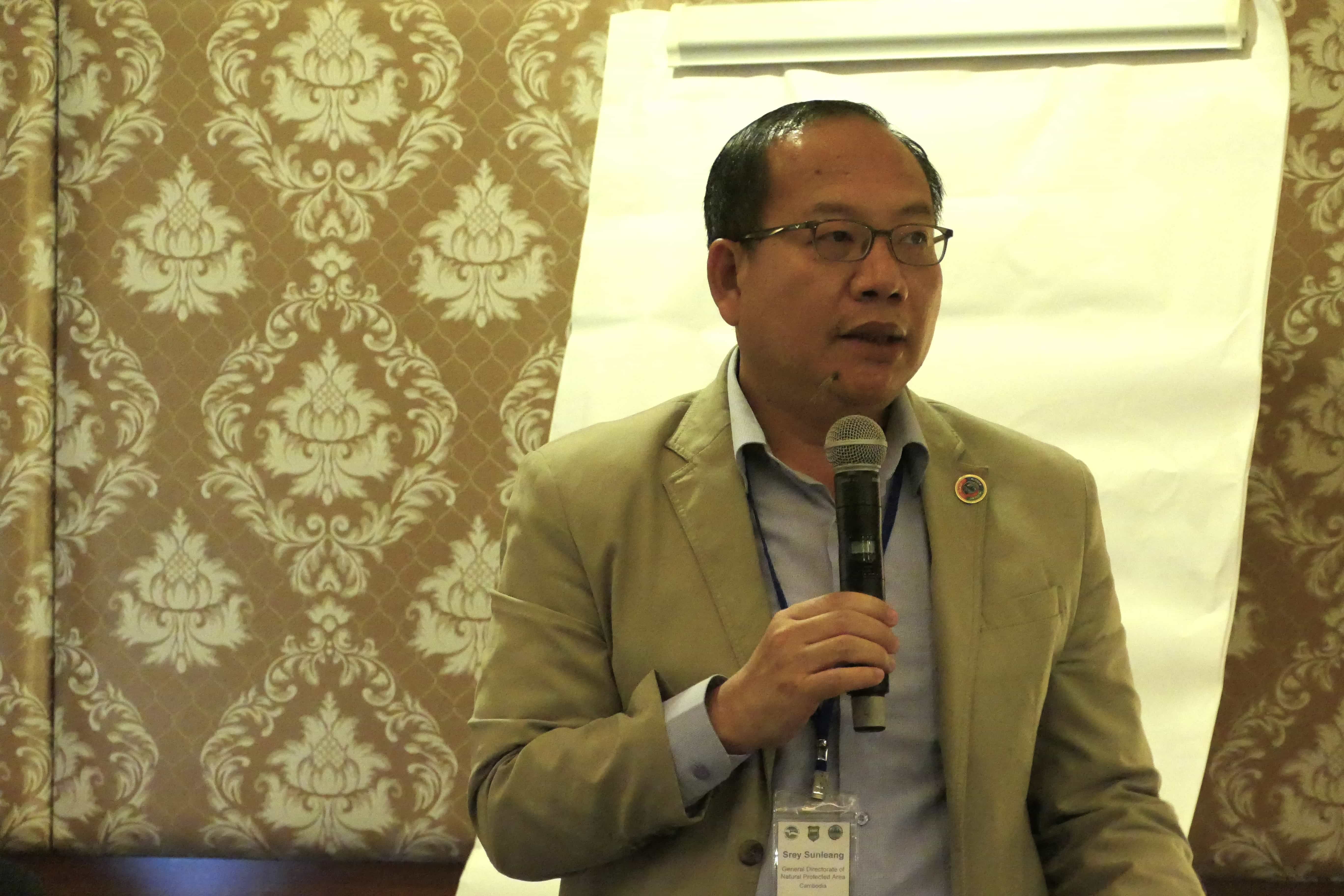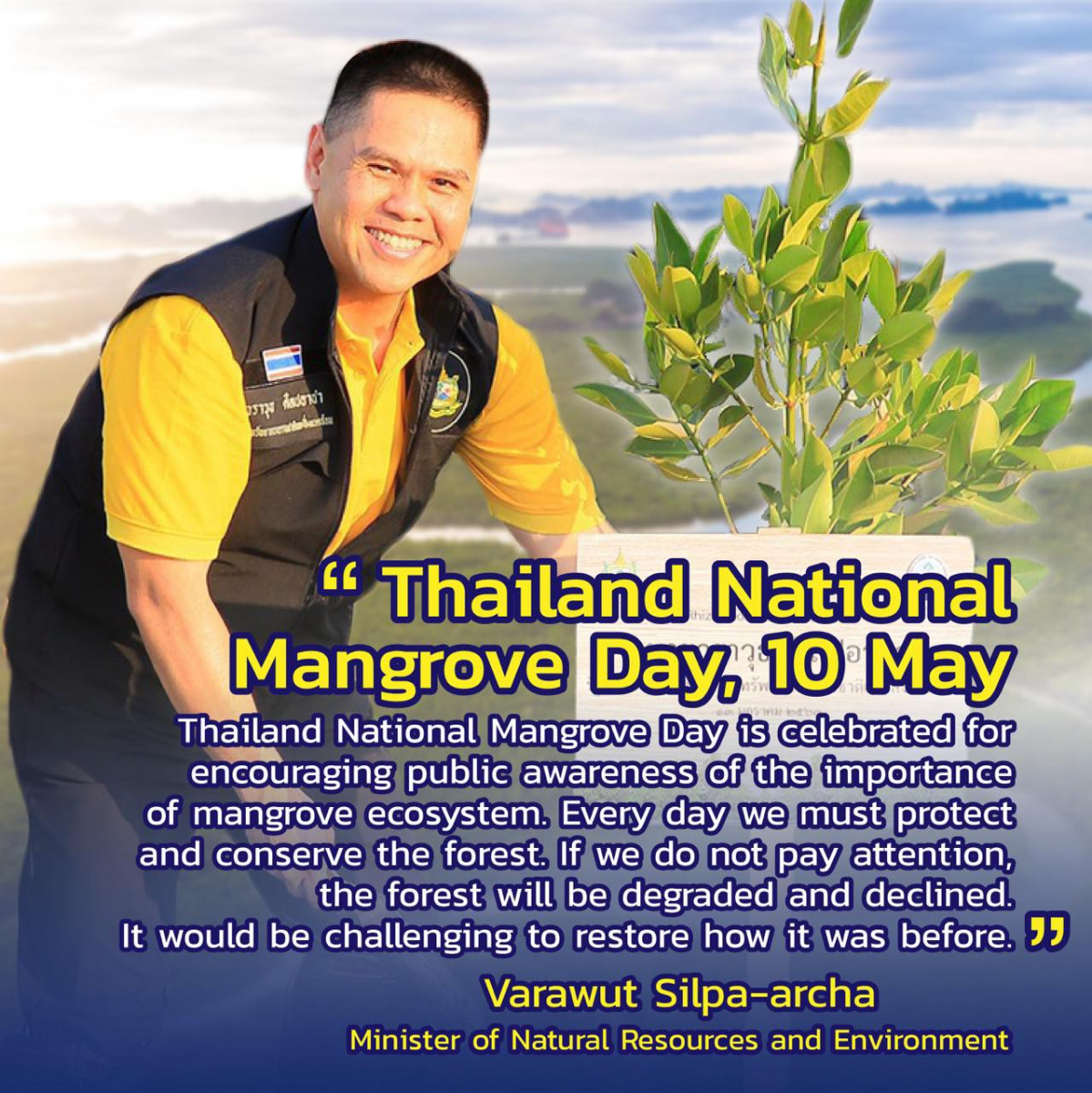Guided by the current IBRRI Strategic Plan (2019-2024), IBRRI national focal points reported substantial progress in wetland conservation, including the designation of new Ramsar Sites in Myanmar, along with consultations for additional Ramsar site designations in Cambodia, Lao PDR and Thailand in 2023 and early 2024. Government representatives also shared updates on relevant wetland policies, as well as a wide range of activities to further engage with local communities on wetlands management, including World Wetlands Day Celebrations, curriculum development, and joint patrolling and management of sites. Wetlands practitioners from civil society organisations (CSOs) and non-governmental organisations presented their ongoing work on enhancing wetlands conservation through livelihood improvement with local communities, wetland restoration and capacity building for wetlands management with government partners.
Ramsar representatives in the Indo-Burma region highlight emergent needs for wetland conservation
From 28-29 February, participants from Cambodia, Lao PDR, Myanmar, Thailand and Viet Nam convened in Siem Reap, Cambodia, for the 7th Annual Meeting of the Indo-Burma Ramsar Regional Initiative (IBRRI). The meeting provided an opportunity for partners, including representatives of government, non-governmental organisations and Ramsar International Organization Partners to share updates on wetland conservation and management in 2023, and discuss future priorities and opportunities for enhanced wetlands management in the region.
“Wetlands play a significant role by contributing to nearly half of the world’s ecosystem services. IBBRI has managed to develop a unique network of wetland stakeholders.” H.E. Chea Sam Ang, Secretary of State, Ministry of Environment, Cambodia, touched on the IBRRI’s primary function as a transboundary platform during his opening remarks.
Challenges and lessons learned shared during the meeting will help outline the next IBRRI Strategic Plan (2025-2030). Developed in joint consultation with representatives from national NGOs, CSOs and government representatives, the Strategic Plan guides IBRRI in supporting national efforts to advance the protection of wetlands across the region.
“By compiling projects under the umbrella of a Strategic Plan, we can showcase to governments the cohesion in this region and demonstrate to the Ramsar Convention at the global level what’s happening in these five countries,” Raphael Glemet, Senior Programme Officer, Water and Wetlands, IUCN, explained.
During a session on priorities for the next Strategic Plan, participants highlighted the need to integrate knowledge and wisdom of local and vulnerable communities in wetlands management. Strengthened site management is also needed to support disaster management and increase community resilience to floods and droughts. Given similar priorities across countries in the Indo-Burma region, learnings can be shared through regional mechanisms facilitated by the IBRRI Secretariat, which acts as a platform to bring together all individuals working on wetlands in the region. The ongoing development of large-scale regional programmes on wetlands will provide an opportunity to continue to build on IBRRI’s work and support the implementation of the Strategic Plan.
The results of the discussions will be consolidated and integrated into the draft Strategic Plan (2025-2030). “We are trying our best to make sure that conservation management of wetlands is going to succeed in a manner that every stakeholder is in a win-win situation.” Dr Srey Sunleang, IBRRI Chair and Ramsar National Focal Point, Cambodia, emphasised in his closing remarks.
About IBRRI
The Indo-Burma Ramsar Regional Initiative (IBRRI) was jointly developed by the Ramsar National Focal Points of the five countries (Cambodia, Lao PDR, Myanmar, Thailand, and Viet Nam), and the IUCN Asia Regional Office, based on specific needs identified in these countries. It was endorsed by the 52nd meeting of the Ramsar Convention Standing Committee in June 2016. The IBRRI aims to support the coordinated implementation of the objectives of the Strategic Plan of the Ramsar Convention. IUCN serves as the Secretariat for the Initiative under the leadership of the Steering Committee, which includes representatives from the five governments and the Ramsar Convention Secretariat as an observer.
